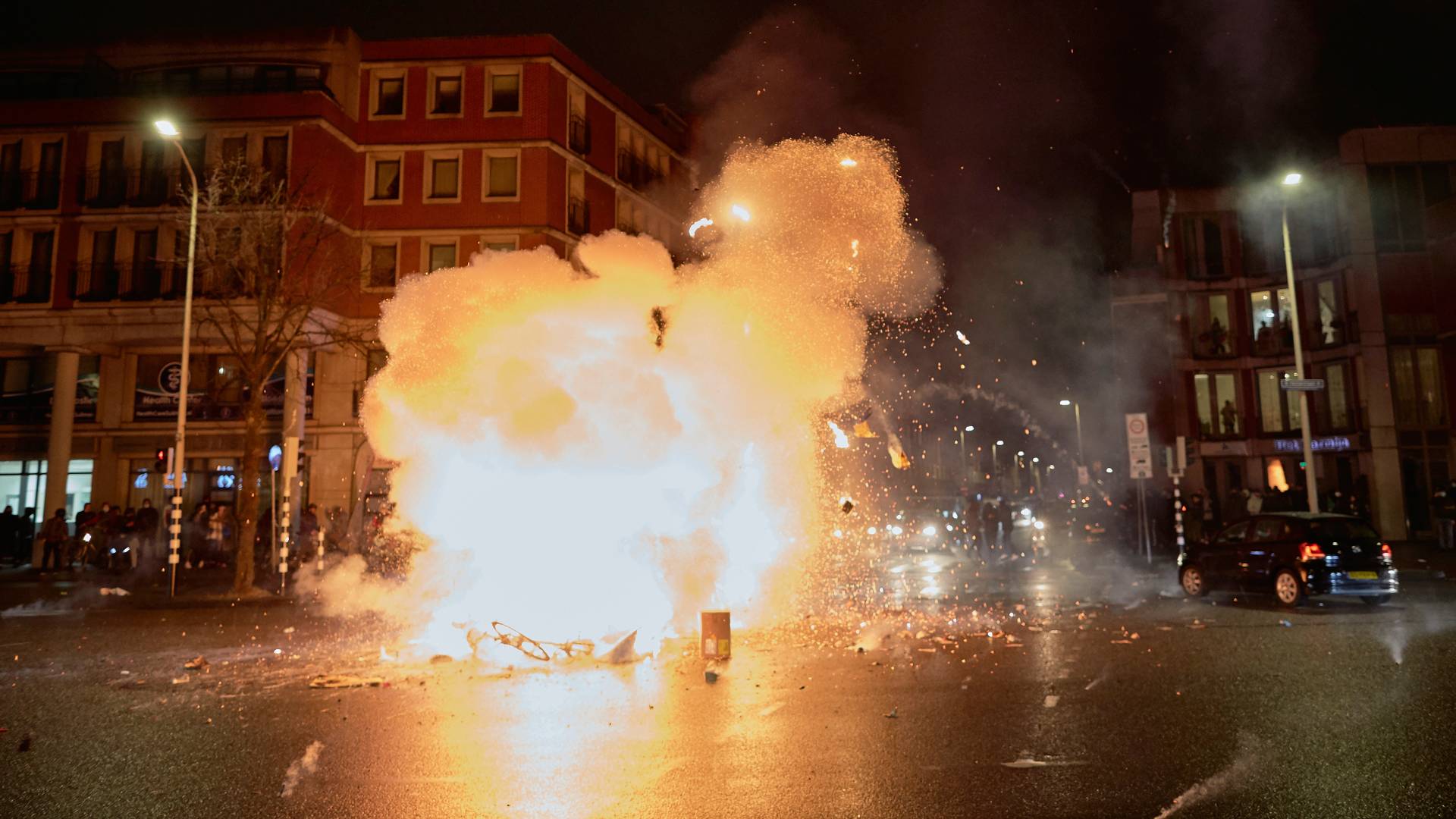We assess that there is a heightened threat of attacks by anti-vaccine extremists in several European countries this winter.
This assessment was issued to clients of Dragonfly’s Security Intelligence & Analysis Service (SIAS) on 8 December 2021.
New Covid-19 measures and public debate over vaccine mandates seem to have fed into the violent intent of anti-vaccine extremists on online forums we monitor. The government is the primary target of such hostility. But specific businesses have also featured in such chatter when they have been perceived to be involved in vaccination campaigns or have imposed vaccine requirements on their staff.
Much of this anger will probably result in anti-vaccine extreme individuals committing violence during protests against restrictions. This is what occurred in half a dozen countries last month. But we assess that separate vandalism or arson attacks are reasonably likely against Covid-19 facilities such as vaccination centres, and government buildings. Based on precedent, these are particularly likely in France, Germany, Italy and the Netherlands. Meanwhile, we assess that anti-vaccine groups pose a low but persistent threat of targeted actions against businesses in the UK.
Threat of violence
The anti-vaccine movement in Europe encompasses a wide range of ideologies. These include libertarianism, conspiracy theories and far right, as well as people who disagree on ethical or moral grounds with vaccine mandates. Most groups seem to subscribe to non-violence. But our monitoring of their forums suggests that extremist individuals make up a significant minority. Such people appear to have been largely behind unrest during initially peaceful protests against restrictions across Europe in recent weeks.
A recent tightening of restrictions across Europe has heightened the intent of extremists to resort to violence, in our analysis. Groups we monitor have expressed anger at new measures, particularly those restricting access of unvaccinated people to some services, as in Czechia, Germany and Italy. Narratives have centred on the idea that these are the final stage of authoritarian measures that should be violently resisted. Recently-announced plans to make vaccination mandatory in countries such as Austria and Germany will probably exacerbate this sense of urgency.
Most anti-vaxx violence will probably remain limited to anti-restrictions protests. These are planned in France, the Netherlands and Sweden for the coming two weekends. But we assess there is also a reasonable chance of separate small arson or vandalism attacks, particularly against Covid-19 facilities, such as vaccination centres, and security forces in the near term. A few dozen attacks occurred in France this summer when a ‘health pass’ came into force, and several took place in the Netherlands, Italy, Poland and, as recently as last week, Germany. The prospect of vaccine mandates seems to be a motivator for attacks.
There is no precedent for anti-vaccine groups using explosives to cause fatalities or major material damage. Nor have we seen reports of foiled plots involving bomb-making material by such groups. But the availability of this and the knowledge required to build small explosive devices, combined with the broad and fluid membership of the anti-vaxx movement, mean that we assess that is a reasonable possibility that extremists would seek bombs in non-lethal attacks over the medium term.
Risk for businesses
Targeted actions against businesses are reasonably likely in the UK. Anti-vaccine activists there have proven more willing than in other countries to target companies in recent months. And while the authorities will probably remain the primary focus of their actions, specific businesses have also been named in hostile chatter we have seen in recent weeks. These were mostly firms that users perceived to be involved in vaccine rollouts or to have imposed vaccine requirements on their staff. We have alerted clients we have seen named.
We assess the risk for businesses of anti-vaccine violence is low. So far, incidents have not exceeded protesters storming into foyers. Police have reported a few hoax bomb threats against vaccine producers. The main risk that these groups pose for businesses is probably confined to the internet. Some companies reported that their staff had received death threats and were targets of doxxing campaigns. These involve sharing someone’s personal information online and encouraging people to harass them.
Image: Fireworks explode amid riots against new Covid-19 restrictions on 20 November 2021 in The Hague, Netherlands. Photo by Pierre Crom via Getty Images.




